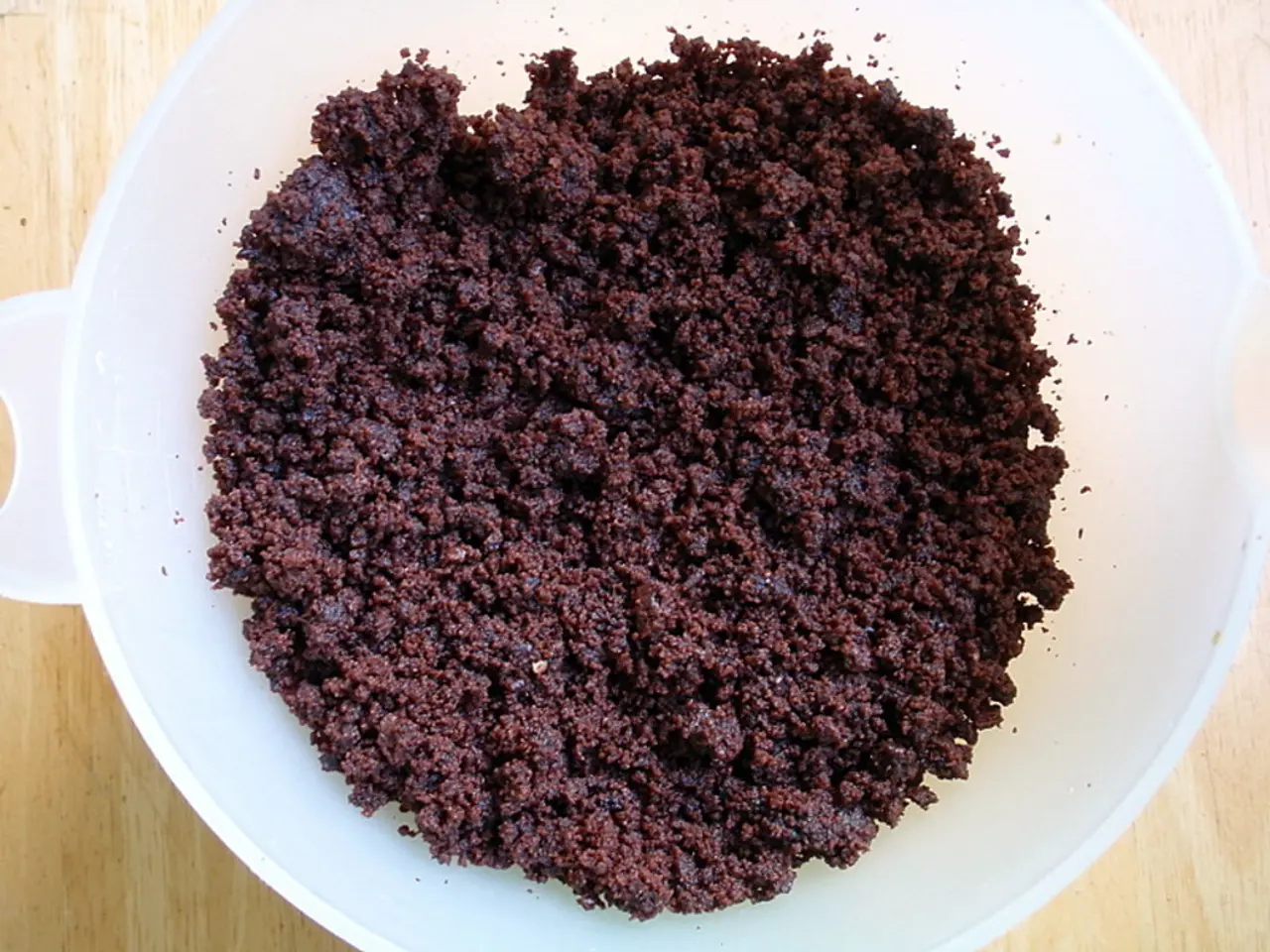Dietary approaches for managing irritable bowel syndrome (IBS) and selecting the suitable one for you
In the battle against Irritable Bowel Syndrome (IBS), understanding your triggers and adopting a balanced diet can bring significant relief. Here's a breakdown of what you need to know.
Firstly, if you suspect you might be suffering from malnutrition due to IBS symptoms, it's crucial to consult with a doctor. They can provide guidance on managing your condition effectively.
The low FODMAP diet, a dietary approach that reduces the intake of certain fermentable carbohydrates, is often recommended for IBS patients. These short-chain carbs, such as those found in onions, garlic, milk, wheat-based products, cauliflower, and beans, are poorly absorbed in the gut and can trigger IBS symptoms like bloating, gas, and diarrhea. Instead, opt for foods like zucchini, carrots, oranges, bananas, and white rice, which are generally better tolerated.
To identify personal IBS food triggers, an elimination diet is recommended. This involves removing common potential triggers like dairy, gluten, or FODMAPs for 4 to 6 weeks, while carefully documenting food intake and symptoms in a food diary. Subsequently, foods are reintroduced one at a time and symptoms monitored to observe any reactions. This process helps uncover specific food intolerances responsible for IBS flares.
Regular exercise can also benefit both mental and physical health and may reduce constipation, a common IBS symptom. Remember, it's best to gradually increase your fiber intake to avoid discomfort. Soluble fiber, found in fruits, oats, and beans, can help reduce bloating and excess gas production, while insoluble fiber, present in whole grain foods, can help add bulk to your stool.
It's important to note that stress, anxiety, too much or too little exercise, eating too much or too quickly, hormonal fluctuations, certain medications, and eating patterns can contribute to IBS symptoms. Chewing food slowly and thoroughly can aid digestion and prevent bloating.
Lastly, if you're unsure about which dietary changes to make, a dietitian can be a valuable resource. They can help you try out different IBS diets, create meal plans, and advise on vitamin or mineral supplements, if necessary.
In summary, combining a low FODMAP diet with the systematic approach of elimination and reintroduction, all carefully tracked via food diaries, has been shown to be the most effective dietary strategy to manage IBS symptoms and identify individual food triggers.
- A naive person might find it difficult to manage Irritable Bowel Syndrome (IBS) without understanding their triggers and adopting a balanced diet.
- Established science indicates that regular eating of certain fermentable carbohydrates, like those found in onions, garlic, milk, wheat-based products, cauliflower, and beans, can trigger IBS symptoms.
- People with IBS can find relief by opting for a diet rich in fiber sources such as zucchini, carrots, oranges, bananas, and white rice, which are generally better tolerated.
- To establish personal IBS food triggers, a systematic elimination diet, involving the removal of common potential triggers, is recommended.
- A nutritionist, who specializes in health and wellness, can help identify specific food intolerances responsible for IBS flares from a study of food diaries and reintroduction of foods one at a time.
- Workplace-wellness and fitness-and-exercise programs can benefit individuals with IBS, as they may reduce constipation, a common IBS symptom, and aid mental health.
- Mental-health therapies and treatments are important for managing IBS symptoms, as stress, anxiety, and hormonal fluctuations can contribute to IBS flares.
- CBD, a product often linked with skincare and health-and-wellness, has not been extensively studied for IBS, but it may potentially help alleviate pain and improve overall well-being in some individuals.
- A dietitian can provide valuable insights and guidance on managing IBS by suggesting different diets, creating meal plans, and advising on vitamin or mineral supplements, if necessary.
- Men's health and women's health may find unique challenges when it comes to IBS, so it's essential to be aware of the specific symptoms and treatment options associated with each gender.




